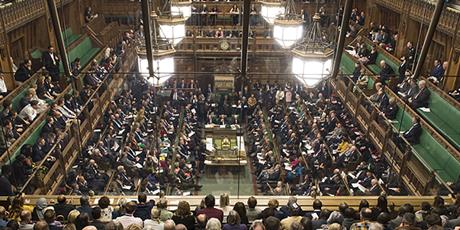Tuesday 4 December the House of Commons voted in favour of a “contempt motion” for the Government May’s failure to publish the legal advice by Attorney General Geoffrey Cox concerning the EU Withdrawal Agreement. With 311 votes in favor and 293 against, the British MPs approved a motion finding Ministers in contempt and establishing the immediate publication of the full and final legal opinion on the Brexit deal.
The vote was called by the Speaker of the House John Bercow (a former Tory backcencher before becoming Speaker) after he received letters from six opposition MPs regarding the failure by the Ministers to respect the terms of the motion approved in the previous days. On 3 December the Speaker made this statement in the Commons: “(…) I am satisfied that there is an arguable case that a contempt has been committed. I am therefore giving precedence to a motion to be tabled tonight before the House rises and to be taken as first business tomorrow, Tuesday.”
Last 13 November, in fact, the MPs had adopted a binding motion in terms of parliamentary procedure that committed the Government to publish the final and full legal opinion that the Attorney General had provided to the Cabinet. According to the rules of proceedings of the House of Commons contempt is “any act or omission which obstructs the House of Commons in carrying out its duties can be seen as a contempt of Parliament”.
After the vote, the Leader of the House, Andrea Leadsom, announced the publication of the legal opinion for the following day, so as to allow an informed vote on Brexit next 11 December.
The text of the contempt motion reads: “That this House finds Ministers in contempt for their failure to comply with the requirements of the motion for return passed on 13 November 2018, to publish the final and full legal advice provided by the Attorney General to the Cabinet concerning the EU Withdrawal Agreement and the framework for the future relationship, and orders its immediate publication.”
In this respect it is worth recalling the words pronounced on 19 May 1978 by Marco Pannella in the Chamber of Deputies: “In democracy, the procedural moment is probably even more crucial than the apparently substantive one. The rules of the game, how to behave, how to stay together, the codification of these rules, is the substance of democracy.”
By adopting the contempt motion, the British Parliament has asserted the importance of respecting the rules and the word given. It has maintained legislative oversight over the executive branch. Despite the dire circumstances, from the United Kingdom comes a lesson and an encouragement for the right to know, for parliamentarians, for representative democracy, for citizens, for the rule of law.
Matteo Angioli

